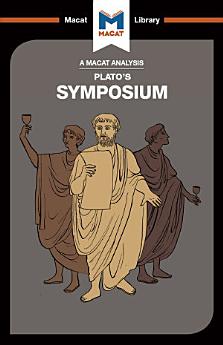An Analysis of Plato's Symposium
Über dieses E-Book
Autoren-Profil
Dr Richard Ellis is a Lecturer in the Department of Classics at the University of California Los Angeles. His research interests include all areas of ancient Greek philosophy, with a specialisation in the Pre-Socratics, as well as the intersections between early Greek philosophy and literature and the philosophy of the 17th century British writer John Locke.
Dr Simon Ravenscroft is research fellow at the Von Hügel Institue for for Critical Catholic Enquiry at the University of Cambridge. His research interests sit at the intersection of theology, philosophy, literature, and political and social theory. His doctoral dissertation was on the philosophical and theological underpinnings of the social theory of the radical social theorist Ivan Illich.




